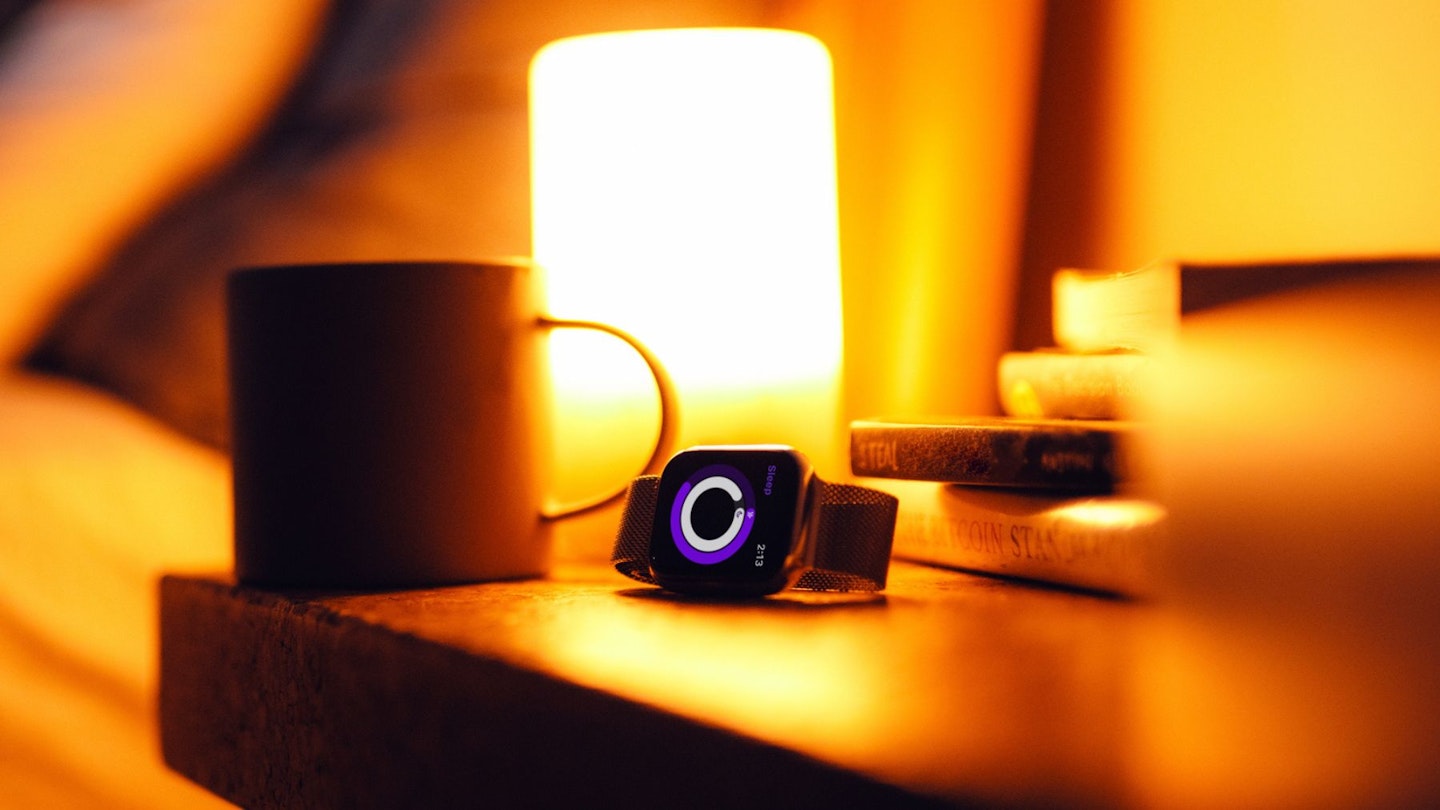April is Stress Awareness Month and the reality is that 1 in 14 adults in the UK feel stress everyday, so studies have shown. If you've had enough and you don't want this to be your reality anymore, the answer could lie in wearables. What if your fitness trackers and tech could not only just track your steps, but also guide you through moments of calm?
We all know what stress feels like. That overwhelming, panic-inducing, anxious state of mind. More scientifically, stress is a biochemical reaction within our bodies that triggers the release of hormones like adrenaline and cortisol into the bloodstream. Adrenaline ramps up our heart rate and prepares us for action in the face of 'perceived danger' (we say perceived, as deadlines at work aren't really a danger but they can still trigger an adrenaline response). Meanwhile cortisol (nicknamed 'the stress hormone') primes the body for sustained action. In collaboration, these two will alter brain function and supress non-essential functions like digestion.
This comes as a bit of a double-edged sword. When stress is present quite often, or for prolonged periods of time, this may take a toll on your body and mind. But, the answer might lie on your wrist. In fact, there's a whole host of gadgets waiting to offer you a path to peace (and they're more than just smartwatches).
What is mindfulness?
Mindfulness is all about being fully present in the moment, according to mental health charity Mind. It involves cultivating a deep, non-reactive awareness of our thoughts, emotions, sensations and surroundings (without any judgement). With roots in Buddhism, mindfulness beckons us to embrace the here and now - but you don't have to be spiritual to reap the benefits. After all, we all have the ability to savour the richness of each passing moment - no matter how big or small - whether that be listening to your favourite song, feeling the sun on your skin, or just being in complete silence.
The aim of mindfulness isn't to never be stressed again. Instead, it's about becoming more self-aware, managing stress better and being kinder towards yourself.
How can I manage stress better?
The reality is that nobody is going to manage stress effectively all of the time. But, the key is to be aware of some of the things you can turn to, whether that be a digital wellness tool or physical exercise, so your stress doesn't take over your life.
Getting your body moving each day is one of the best (and easiest) preventatives for stress. Whether that be a 10-minute brisk walk, a run or a restorative yoga session, movement not only releases tension from your body, but it also floods the brain with feel-good endorphins.
Leading on from that, part of managing stress is knowing when you're stressed. We have all the technology in the world at our fingertips, so we might as well use it to help with our stress. Wearables like smartwatches are good for monitoring stress as many come equipped with the means to measure your heart rate variability (HRV) to access your body's stress levels. Guided breathing exercises, sleep scores and exercise tracking are all features that also might come in handy when tackling stress.
Also don't underestimate the power of social interactions. Reach out to your family, friends, join a run club or find your local book club. Having someone to talk to during stressful times will help take your mind off it, and will more often than not provide perspective during difficult periods.
In addition, self-care will help with stress. Women know the importance of an 'everything' shower, but equally running yourself a bath, making yourself a cup of tea or watching your favourite TV show are just as important.
Fitness watches
Some cutting-edge fitness watches, smartwatches and trackers have the ability to collect stats on your HRV, skin temperature and sleep quality. This is all thanks to unique and extremely technically-advanced sensors.
Recognising stress can be difficult to do, but in some smartwatches all the information from your body gets turned into a daily stress management score. Brands like Fitbit and Garmin offer a 1-100 stress score on their wearables, while Apple offer other apps for stress monitoring. Of course these are just a couple of examples, as there are so many 'best smartwatch' contenders on the market.
Best fitness tracker for stress monitoring
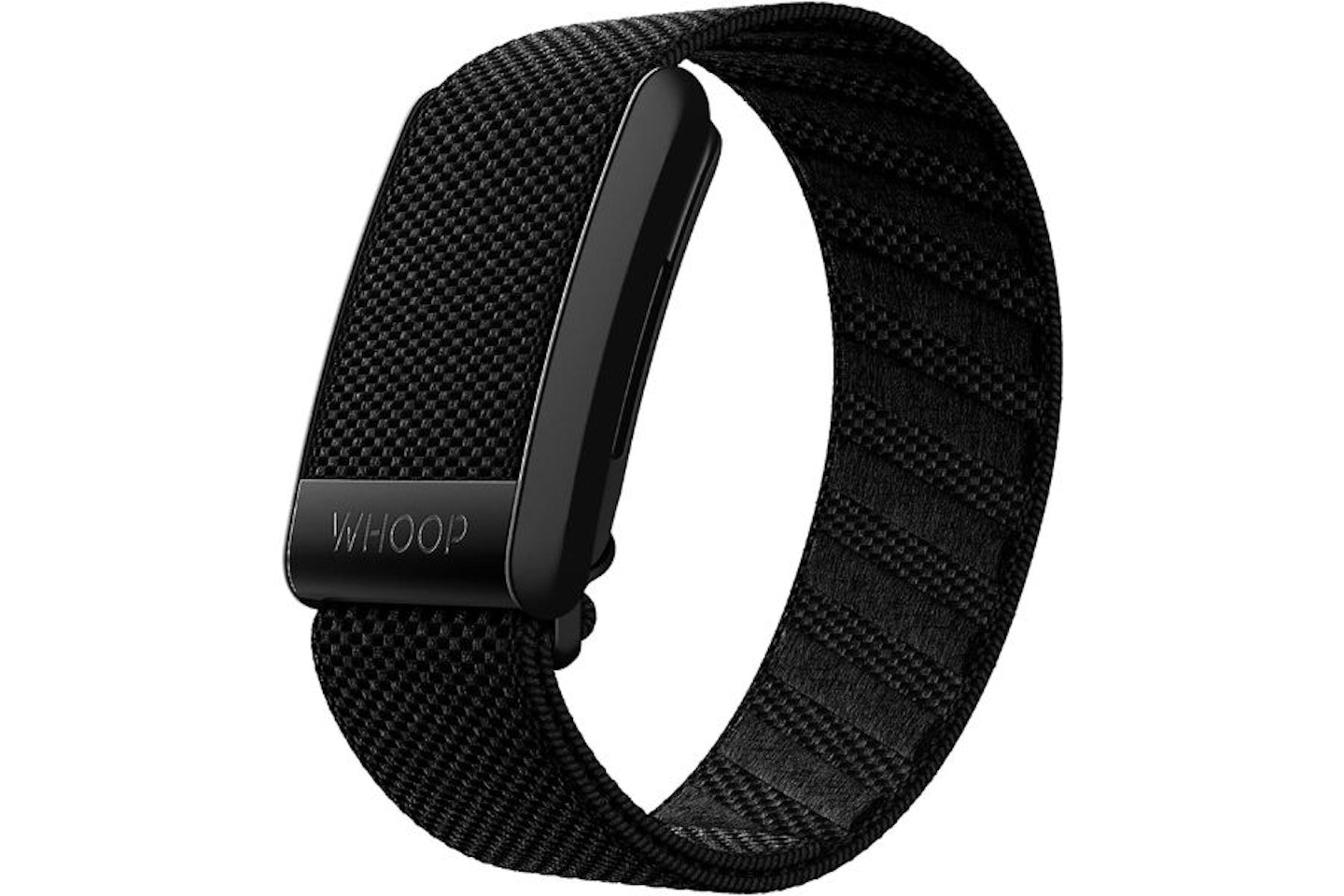 WHOOP
WHOOPwww.join.whoop.com
The WHOOP 4.0 is the latest model of the ground breaking wearable. Now you might've seen this marvel on TikTok, but if not, the one thing to know about it is that it's marvellous at tracking mindfulness statistics. Featuring five LEDs and four photodiodes there's not much this unassuming fitness tracker doesn't measure, from skin temperature to HRV.
What truly sets the device apart is WHOOP's commitment to individualisation. Each user's data is analysed to provide tailored insights and actionable recommendations beyond the usual notification to 'stand up and move around.' And with a chic design and backing from celebrities like LeBron James, it's not hard to see why this fitness tracker is so popular.
Pros
- Biometric tracking including skin temperature and blood oxygen
- Comfortable enough for all-day wear
- 5 LEDs and 4 photodiodes capture your data more often than most wearables
Cons
- Calorie burn metrics tend to be a little off
| Screen size | 4-inches |
| Weight | 140g |
| Waterproof | Yes |
| Battery life | 5 days |
| Sensors | Skin temperature, Blood oxygen, Sleep, HRV, Respiratory rate, Resting heart rate |
- Customer review: "Bought a WHOOP 4.0 as a birthday gift and son loves it. Amazing the amount of information it tracks. Good battery life too."
Best smartwatch for stress monitoring
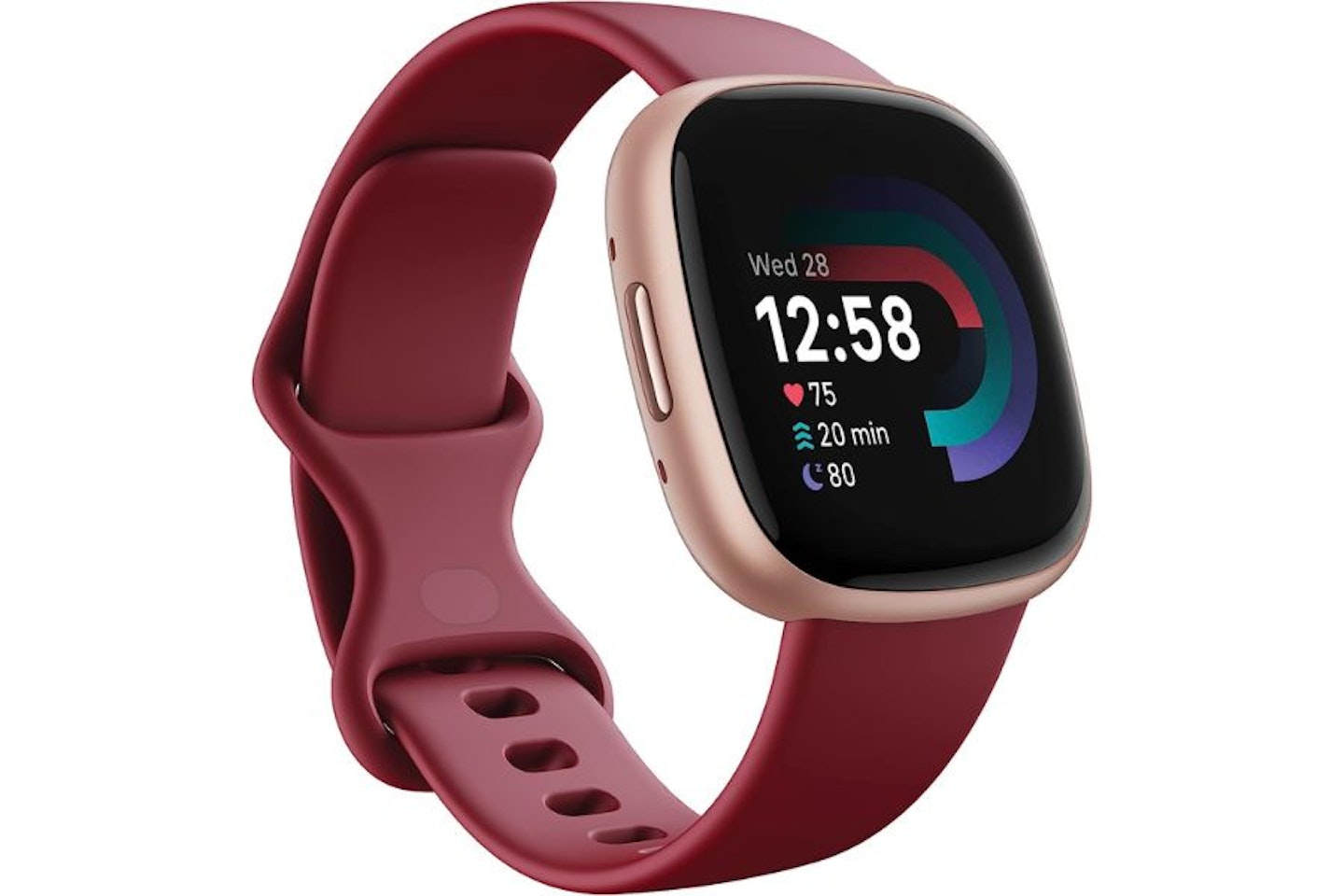 Amazon
AmazonThe Fitbit Versa 4 is a great smartwatch for stress and mindfulness thanks to its ability to show a daily readiness score, stress score and offers guided breathing sessions. So if you're looking for a multifunctional companion for your daily life, this is the perfect choice. While the setup process may require some time initially, once it's up and running you'll have access to a wealth of data to monitor wellness effectively.
The design of the Versa 4 is also particularly appealing, as the screen isn't too chunky, striking the balance for everyday wear without being too flashy.
Pros
- Wide compatability
- Excellent battery life
- Daily stress management score
Cons
- Some deeper insights are behind a paywall
| Screen size | 1.58-inches |
| Weight | Not specified |
| Waterproof | Yes |
| Battery life | Up to 6 days |
| Sensors | Daily readiness, Active zone minutes, Heart rate, Sleep, Stress management score, SpO2 |
- Customer review: "This was to replace my old Fitbit Charge which finally broke. This Versa 4 is better as the face is more watch-like, clearer to see and more responsive when flicking my wrist to turn on. It's not as intuitive to use as my old one, trying to start an exercise type takes time, but I can see emails and messages very quickly and refer to my phone to read more."
Smart rings
Smart jewellery for mindfulness is a relatively new invention, but some of the technology inside these rings are nothing short of inspiring. With sensors embedded seamlessly into sleek designs, these smart rings provide real-time insights into markers such as HRV and skin temperature - offering a window into the body's stress response. By tracking patterns in stats like these you'll be able to gain a deeper understanding of your stress triggers and can recognise early signs of tension. This means you'll hopefully be able to intervene with prevention methods like meditation or exercise before the stress starts to hit.
Best smart ring for stress monitoring
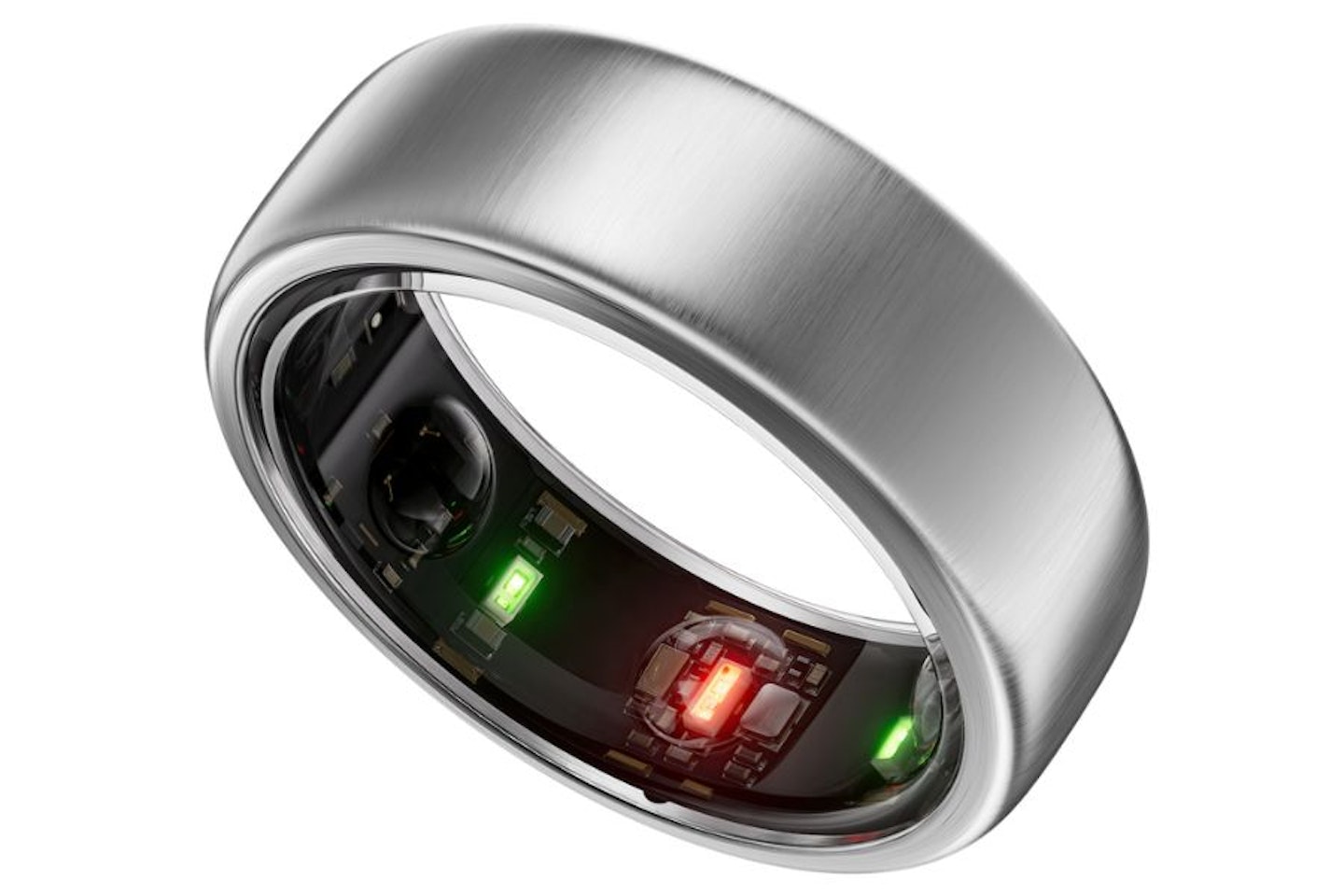 Oura
Ouraouraring.com
The sensors on the inside of this smart ring allow for health tracking in a very covert way. The main thing you need to know about the Oura Ring Heritage is that it will help you to identify signs of stress and learn how your body reacts to it. Trackers like skin temperature, HRV and sleep help the ring to give you feedback so you can work out a plan on how to deal with stress better.
Other remarkable features include a lightweight build, durable titanium construction and a superb battery life, making it an ideal accessory for all-day wear.
Pros
- Highly-accurate
- Compatible with other fitness apps like Strava
- Helps identify signs of stress
Cons
- Looks slightly bulky on smaller fingers
| Weight | 4-6g |
| Material | Titanium |
| Battery life | 7 Days |
| Smartphone compatability | Android, Apple |
- Customer review: "I love my Oura ring, I’ve been using this now for some years, and it has really helped me improve my sleep, monitor my activity and keep an eye on my respiratory rate overnight to inform my asthma management."
Best smart ring to help with recovery
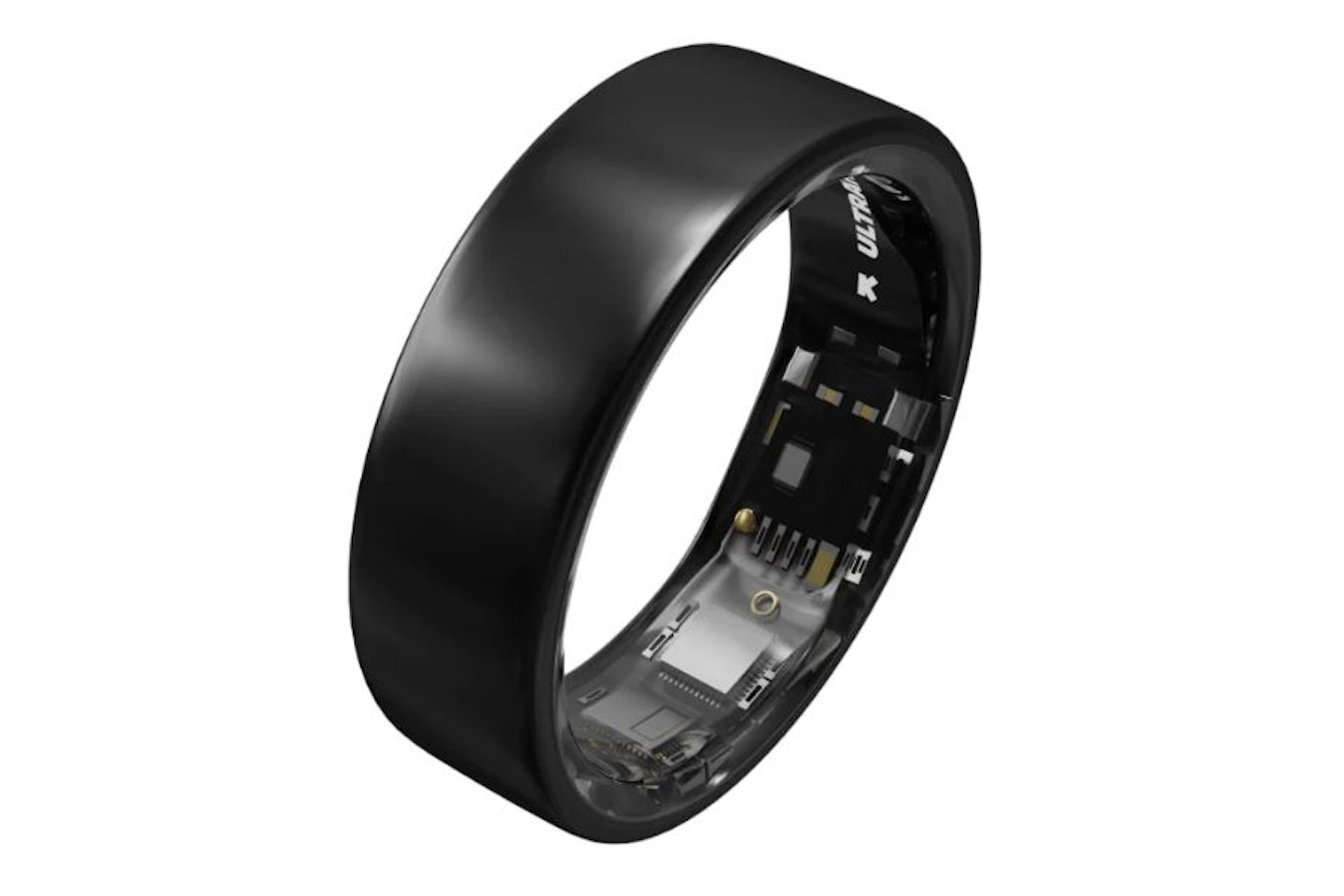 Healf
Healfhealf.com
The Ultrahuman Ring AIR is a versatile choice that has everything you need to help monitor stress. For example, this ring has a Phase Response Curve, which is an interactive map of how stimuli like light, food and exercise affect your circadian rhythm and sleep score. It also measures your body's temperature to understand responses to exercise, stress and illness. Plus, it's feather-light and has a discreet design that's less obtrusive than a fitness tracker.
Pros
- Very water-resistant
- Detailed tracking data
- Features added metrics on sleep and recovery
Cons
- Limited sizes available
| Weight | 2.4-3.6g |
| Material | Titanium with a Tungsten Carbide Carbon coating |
| Battery life | Up to 6 days |
| Smartphone compatibility | iPhones running iOS 14 or later, Android devices running Android 6 or later |
- Customer review: "I've been wearing the Ring Air smart ring for a couple of months now and it's a really solid product. The ring works as expected, is comfortable to wear and so far seems tough enough. The app is excellent, rich detailed data presented in a logical and cohesive way. I had one minor issue where the ring disconnected from my iPhone and wouldn't reconnect, however this was resolved within 10 minutes through live chat support built into the app, providing easy-to-follow video and instructions which fixed my issue."
Biofeedback headbands
These ingenious headbands provide feedback on physiological signs like brain activity, heart rate and breathing patterns, offering insights into our body's responses to stress. By making you aware of these subtle cues, biofeedback headbands empower you to take control of your stress levels, and guide you towards deep relaxation and complete inner peace. They may look like a slightly futuristic contraption, or something you'd see on Doctor Who, but with regular use these headbands could really help when tracking your own brain activity.
Best headband
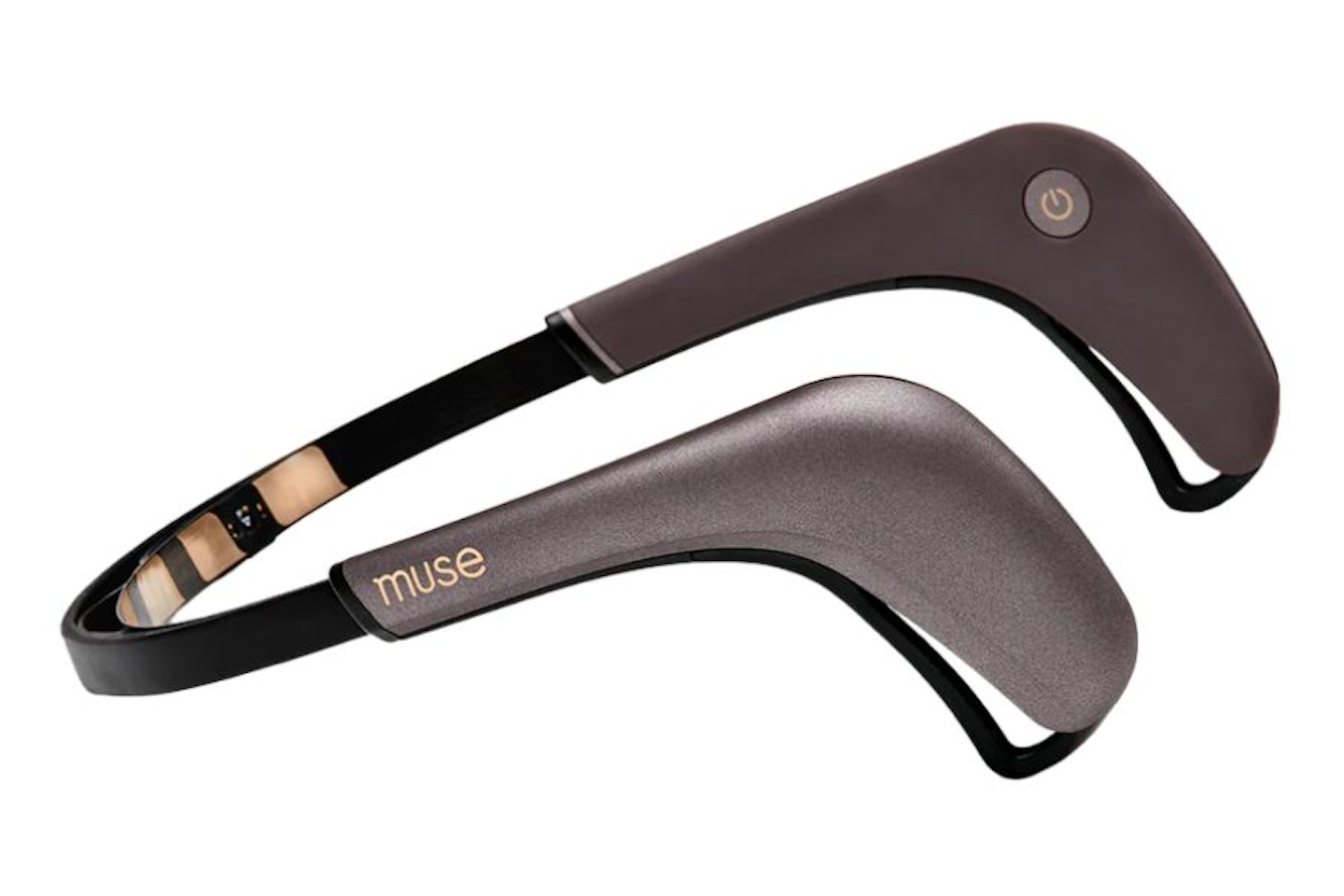 Healf
Healfhealf.com
Muse works to help reduce stress and improve mental clarity with its EEG brain sensors. This acts as your personal meditation coach, cleverly guiding you through your mindfulness journey. The headband offers real-time insights to keep you motivated and on-track towards inner peace. It's also compatible with both iOS and Android so you can explore tailored meditation experiences, regardless of your device. Similar to fitness watches and trackers but on a more advanced level, the Muse 2 tracks brain activity, hear rate, breathing and body movements.
Pros
- Improves your daily mood
- Reduces stress
- Harnesses the power of cutting-edge EEG brain sensors
Cons
- Setting it up can be a pain
| Weight | 200g |
| Battery life | 8 Hours |
| Sensor type | PPG, Pegmeter |
| Material | Silicone |
- Customer review: "Muse is great; I have used it since the first device came out, I think it was in 2014 or 2015, and I have bought every new version since. I mainly use the core meditation function, training myself in more profound meditations via brainwave feedback. Meditation changed my life, and Muse made it more accessible, and I progressed faster into ever deeRead more about review stating Muse is great, it changed my life in a profound way! I don't use or care much for the guided meditations or subscription offerings, nor do I use the sleep tracker, although I did buy the Muse S, as I feel it's such a slick device and less bulky for traveling."
Best headband specifically for meditation
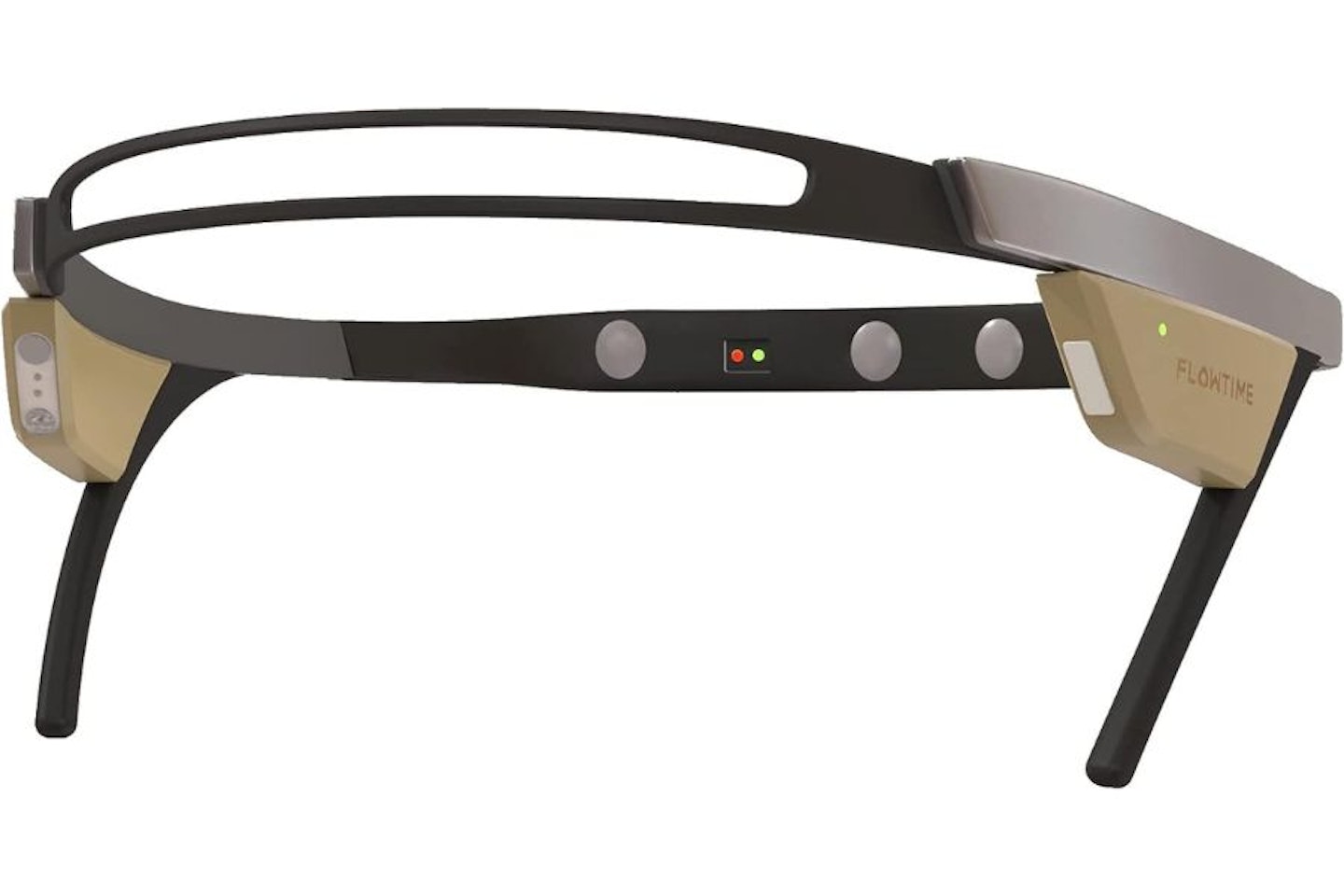 Amazon
AmazonFor extensive tracking of your brainwaves and body, opt for the Flowtime Meditation headband. Get real-time tracking of stats like HRV, brainwaves, relaxation levels, attention and pressure - which provides a roadmap of your meditation states. Delve deeper with scientifically-backed lessons on a wide range of topic with the app that's available on the App Store or Google Play. Once you've finished meditating, you'll receive a comprehensive biodata report that details every minute of your performance. This will highlight areas for improvement and how long you were in meditation bliss.
Pros
- Flexible and adaptable sensor pad to fit your forehead
- Super light and portable
- Tracks brainwaves, heart rate, HRV, relaxation, attention and pressure level
Cons
- Monthly fee required for the accompaning app
| Weight | 33g |
| Battery life | Not specified |
| Sensor type | PPG |
| Material | Not specified |
- Customer review: "Generally the Flowtime headband is very good and I would recommend it. The real-time feedback is really useful. The app is well laid out and the meditations are well done. It’s helping my meditation and is a great motivator. Only knocking off one star as it occasionally looses contact and looses data."
Other relaxation devices
If fitness watches, smart rings and biofeedback bands are not for you, there are a couple of other relaxation devices to be aware of.
Best wearable device for immediate calm
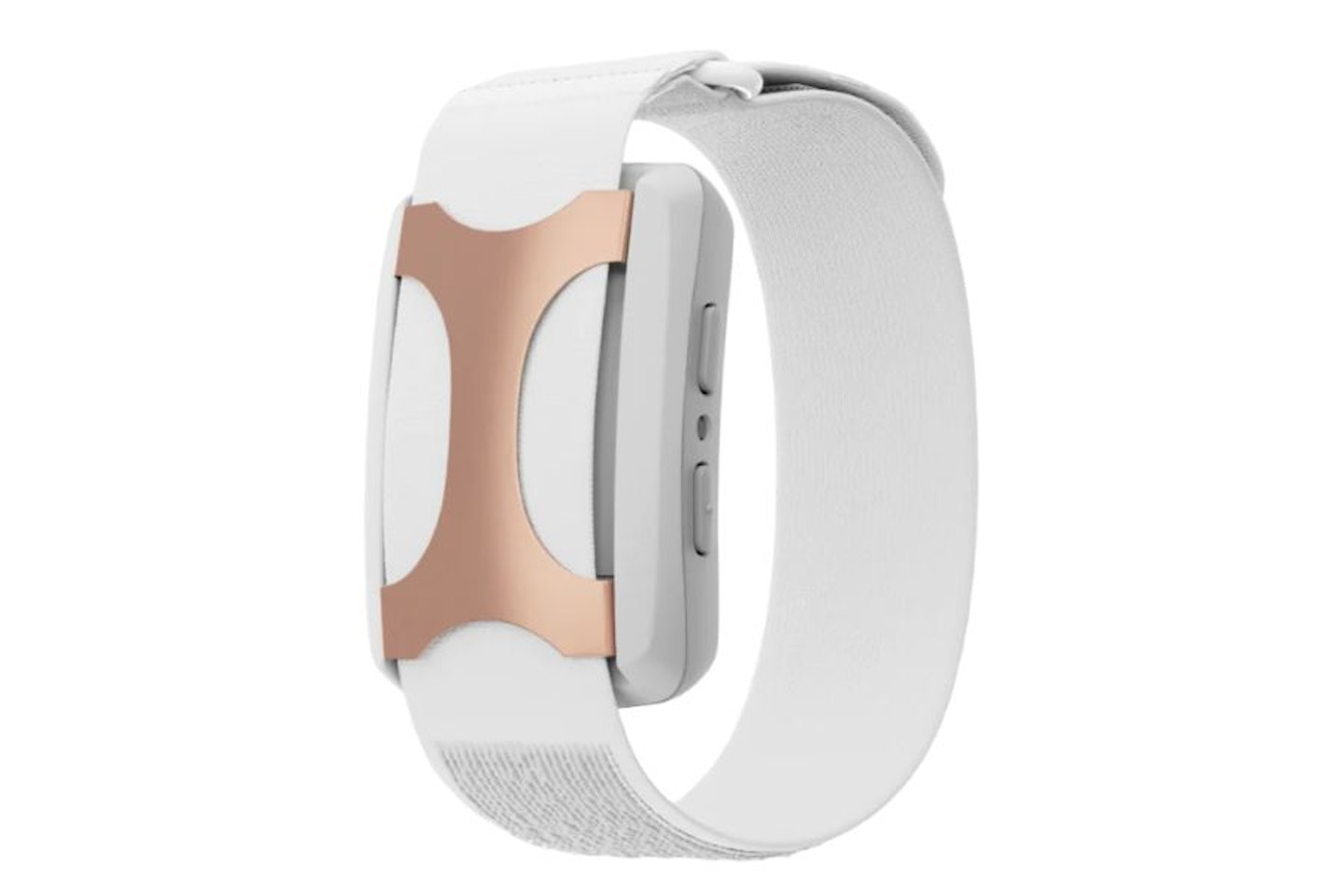 Healf
Healfhealf.com
Packed in this seemingly small gadget is a large amount of sensations. For example, dive into the Unwind and Falling sleep modes for some relaxation, or switch to the Energy Boost mode for a revitalising jolt. Need to sharpen your focus? Engage the Focus and Concentration modes to hone your mental acuity. Made by medical experts and neuroscientists, this device employs gentle, non-invasive touch therapy that delivers discreet vibrations to your body. And with six to eight hours of battery life, Apollo ensures seamless integration into your daily life.
Pros
- Creates soothing vibrations that evoke certain feelings
- Energy boost mode
- Physical recovery modes for post-workout
Cons
- The clip sometimes struggles to grip to clothes
| Battery life | 6-8 Hours of continuous use |
| Clip material | Polycarbonate plastic |
| Band material | Neoprene, Polyester overlays |
| Bluetooth | BLE 5.0 |
- Customer review: "I was looking for a way to stay calm during times of stress at work and otherwise, and normally I would do breathing exercises to stay calm. However, I wanted something 'external' to me, that could keep me calm automatically. When I came across this Apollo wearable, I was immediately intrigued because I had previously learned about the power of meditation and deep breathing in controlling your nervous system, but this device does it for you automatically! It was exactly what I needed and much more. Thank you for developing this technology!"
Best wearable sensory device
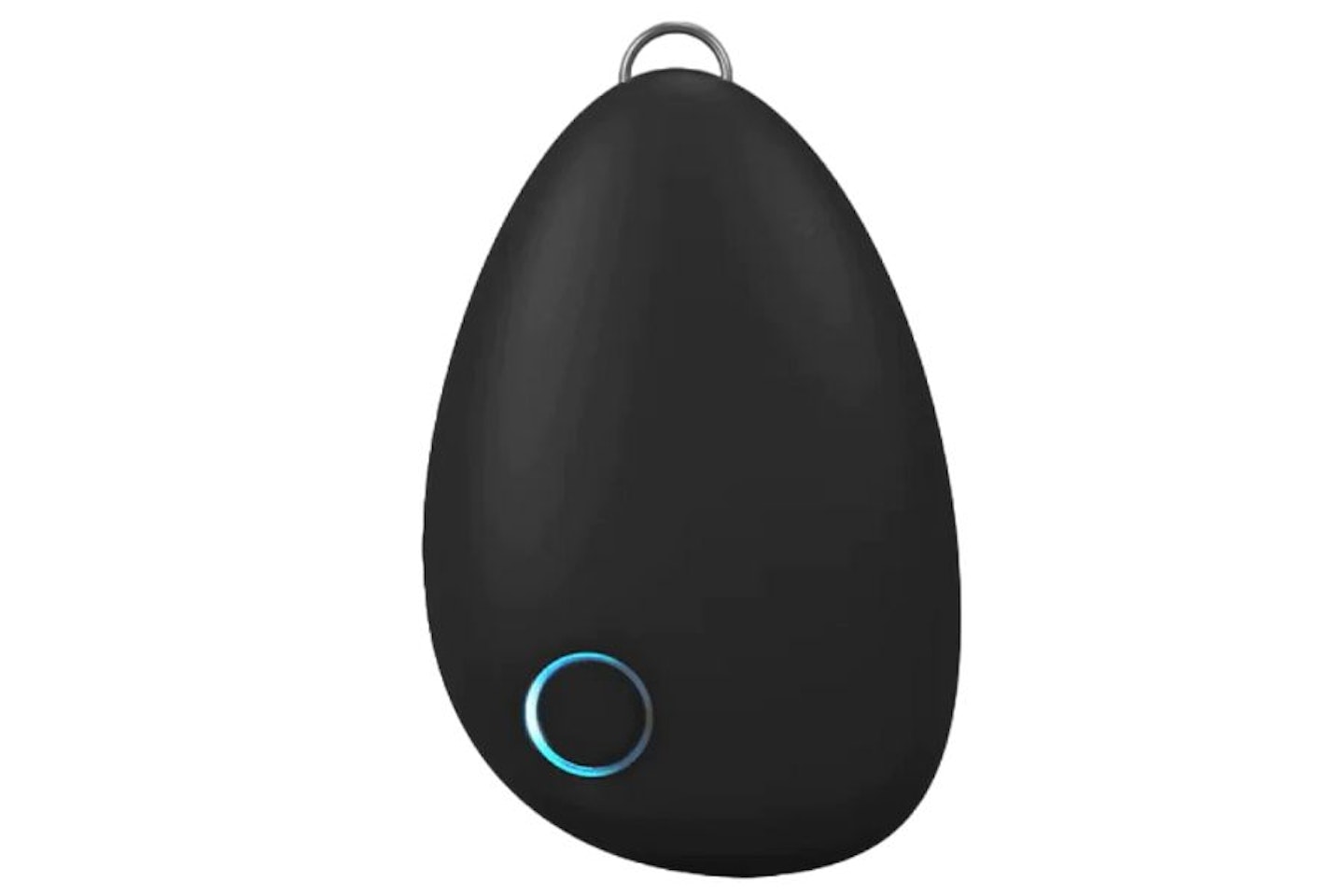 Healf
Healfhealf.com
Tranquillity waits for you in just ten minutes with this nifty device that nurtures your nervous system through non-invasive sound on your sternum that soothes the body's fight or flight response. The experts behind Sensate have perfected their device over 15 years, and have refined its methods through testing and community feedback. Once you turn the Sensate on you'll be guided into a meditative state that has been known to improve sleep quality, focus, well-being and to reduce anxiety.
Pros
- Instant relaxation in just ten minutes
- Builds the body's resilience to stress
- One-of-a-kind
Cons
- The device itself is a little fragile
| Battery | 1 Lithium Ion battery required |
| Weight | 17g |
- Customer review: "This Sensate device is very effective for (my) anxiety and panic attacks. It is pretty fragile as some other reviewers suggested. One thing they could definitely improve going forward is better meditation music options, and/or allowing you to use your own. I have an awesome meditation playlist with frequencies that are healing to me."
How does wearable tech help mindfulness?
Wearable tech can act as a silent (but extremely helpful) guide on the journey to mindfulness. By harnessing advanced sensors and innovative algorithms that we only could've dreamed of a couple of years back you get to truly understand our body's response to stress. With this newfound awareness, it can even help you to make informed choices in your daily life. Whether that's by adjusting breathing during meditation, or recognising individual stress triggers.
Real-time stress monitoring
Wearable devices like fitness watches that are equipped with biosensors will provide continuous monitoring. Your body has vital signs when it comes to stress response, like HRV, skin temperature and EEG brainwave activity - all which can be measured by wearable tech. This is super helpful if you're wanting to destress and implement coping strategies into your daily to maintain composure.
Guided meditation
Many pieces of wearable tech will come with guided meditation programmes, offering users a structured way into mindfulness. Meditation programmes often have audio cues, visualisations and breathing exercises, all with the aim to help you zone out. By leveraging devices with these capabilities, you can access guided meditation sessions anytime, anywhere.
Progress tracking and setting goals
By logging your meditation sessions, viewing your stress score and setting goals on your wearable tech, you can easily measure your progress over time. It's easy to get lost with the idea that you're not many any progress, but seeing improvements in metrics (like stress scores and HRV) can encourage you to stick with the meditation.
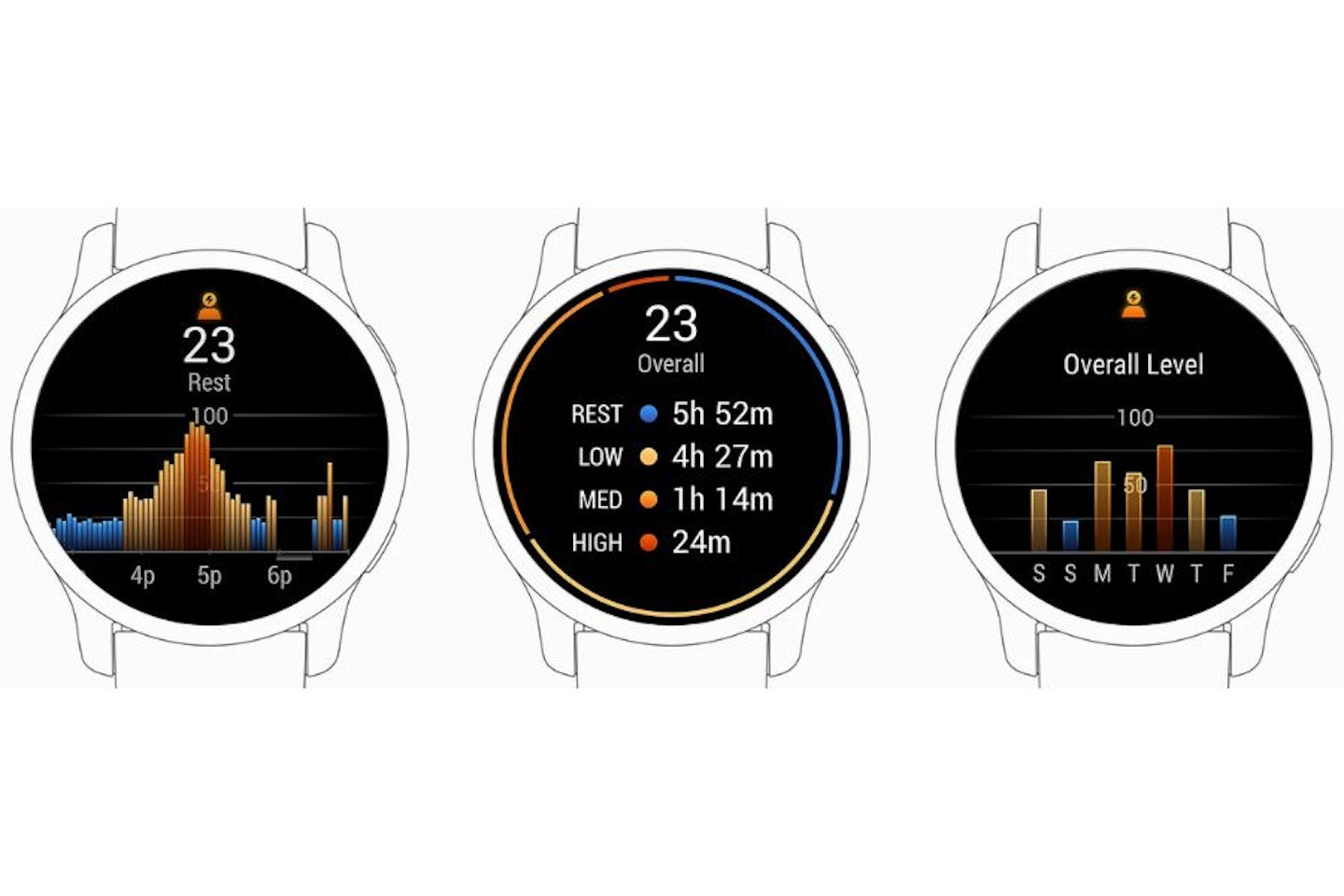
What should I look for in my mindfulness wearables?
If you're going to be investing in a mindfulness wearable, you're going to want the best. Here are some things to look for to ensure maximum effectiveness.
Battery life
A long battery life in your wearables is absolutely crucial for uninterrupted usage. After all, you don't want to be in the flow of your meditation to be stopped by a message that says 'low battery.' To prevent this, look for devices that have a relatively long battery life to minimise interruptions to your health tracking and meditation.
Comfort
Comfort really is key for wearable devices you'll have on your wrist, or head, for long periods of time. In a smartwatch, opt for lightweight designs with adjustable or changeable straps to ensure a comfortable fit. The last thing you want is discomfort distracting you.
Easy-to-use
Once you've invested in a mindfulness wearable, you're going to want to use it right? Nobody wants a tedious setup process or a interface that's difficult to navigate. Instead, seek out gadgets with simple controls and user-friendly interfaces for a more pleasant experience.
Health metrics
You're going to want to look for wearable tech that offers more comprehensive health monitoring than just your heart rate. Look for features like HRV tracking, stress score an skin temperature to get the best idea of your physiological response to both stress and relaxation.
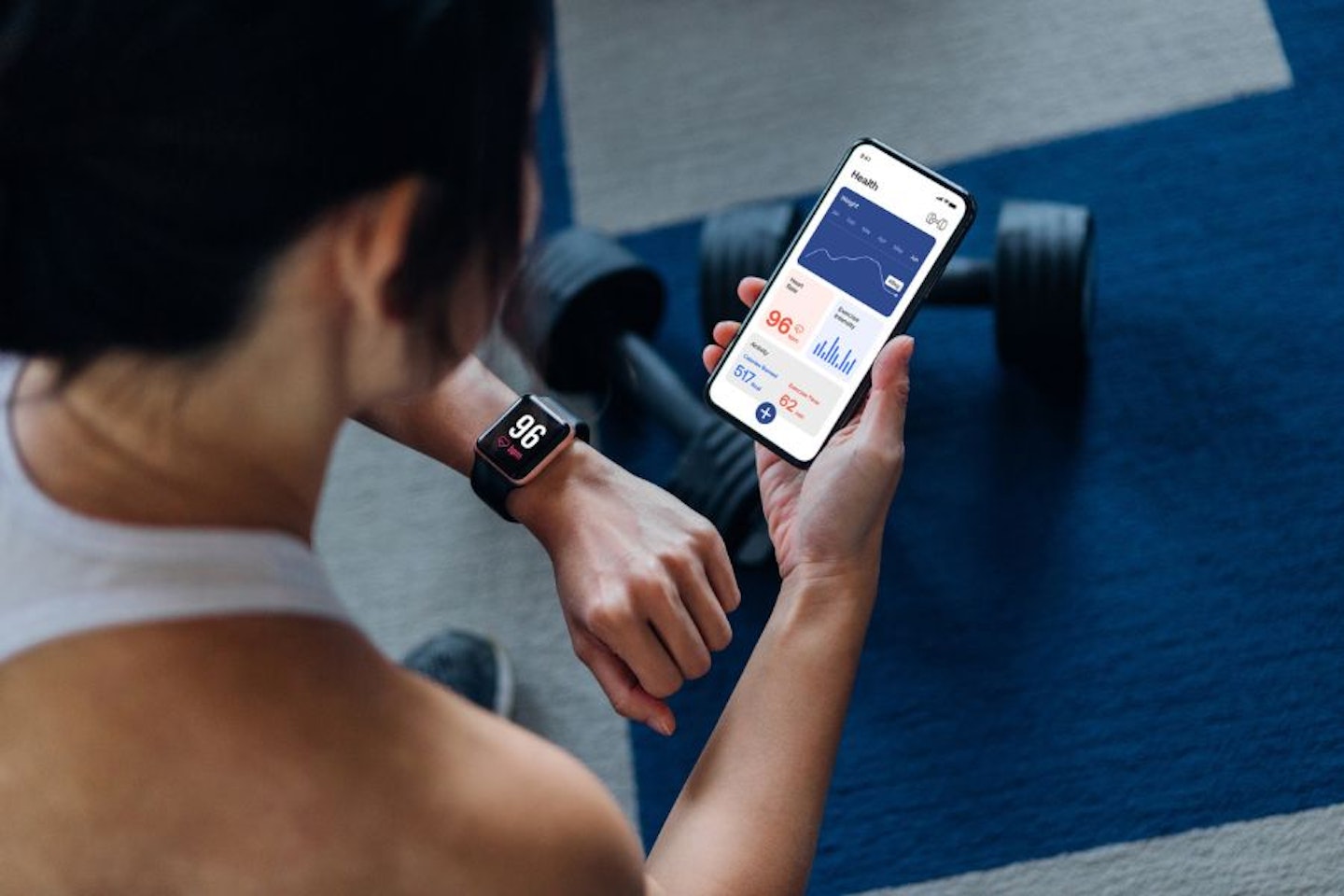
How does technology affect my mental wellness?
Technology has undoubtedly revolutionised the way we work, live and connect and there's definitely a fine line between utilising technology to improve mental wellness, but not overusing it. Yes, wearable technologies are great for tracking stress and helping with meditation, they're not so great if you're not able to switch off (literally) from them. Just be aware that if you're using gadgets for mental wellness, also take some time away from the screen to prioritise other forms of self-care too.
Saying that, wearable fitness tech can be used (in moderation) alongside other more traditional mindfulness practices. These clever gadgets bridge the gap between the digital and physical, transforming our watches, phones and even headgear into tools for self-care. Continually, these wellness devices can help with improving mental health as they monitor metrics and how you're body is actually physically doing. They also often tell you to get up and move if you've been sitting for too long, or to pause and breathe if your stress score is high.
So, with the combination of wellness gadgets and the wisdom of ancient mindfulness practices, it might make it that little bit easier to tackle the complexities of modern-day life.
Are there any downsides to using wearables?
If there's one thing to learn from this article, it's that wearable tech has remarkable potential when it comes to improving mental well-being and stress levels. But, one of the primary concerns about them is around the collection and storage of personal and sensitive data. Wearables with biosensors gather a wealth of information on your body, and while this can give you valuable insights, it also may raise privacy concerns. And we get it - users may be understandably apprehensive about using wearables for this exact reason.
Also, the constant stream of notifications that can come through on smartwatches can be overwhelming and worsen stress. So instead of fostering calm, you find yourself constantly checking your watch for update and whether you've closed your activity ring. This can fuel anxiety and added performance pressure, which won't be beneficial to your mental health.
In essence, wearable tech is mainly a good thing, just don't over rely on it - ultimately mindfulness is about being present in the moment and your technology shouldn't distract from that (and it won't, if chosen correctly).
Gemma Lavers is a Health & Fitness Writer for What's The Best. From understanding nutrition to practising yoga and Pilates to delving into the psychology of motivation. She enjoys demystifying the latest fitness trends and staying on top of the dynamic health landscape, whether that's the best gym leggings, fitness trackers or the benefits of yoga.
When Gemma’s not writing, she can be found attending Pilates, yoga and Zumba classes. She’s also a bit of a home workout aficionado, constantly trying out new ways to keep her moving at home. Between writing, exercising and shopping, there’s nothing she loves more than hopping on a plane and exploring new cultures.
Subscribe to the What’s The Best Newsletter to keep up to date with more of the latest reviews and recommendations from the rest of the What’s The Best team.
